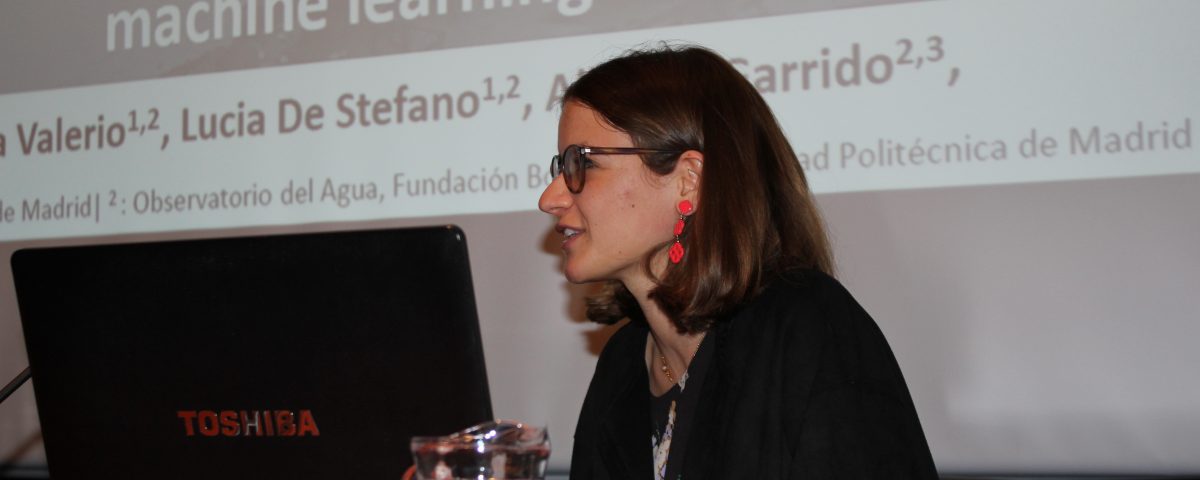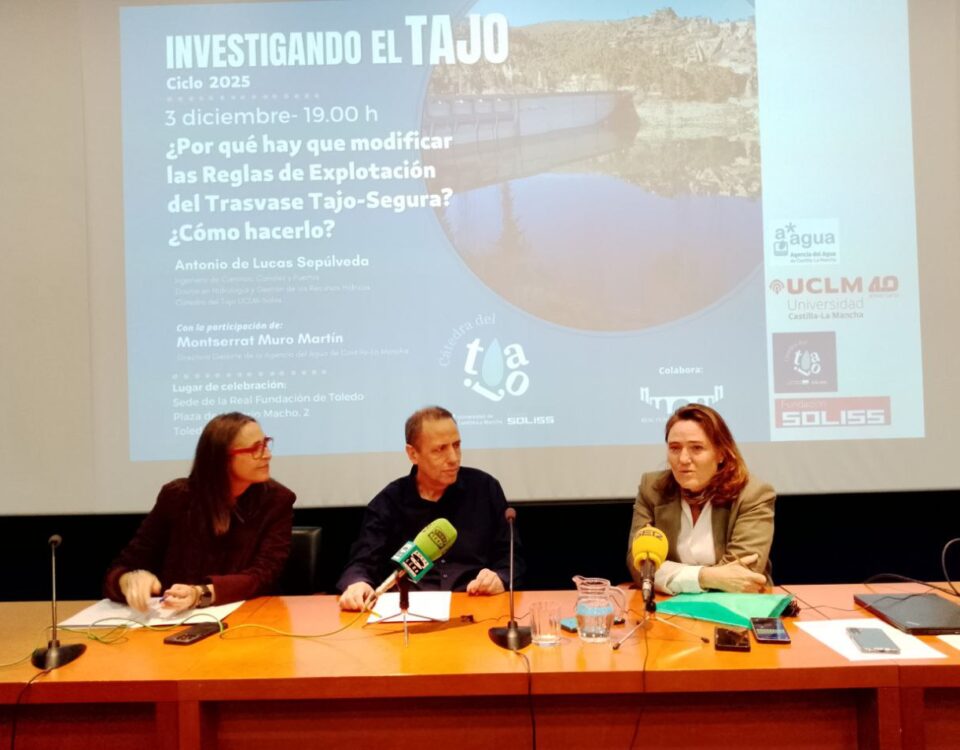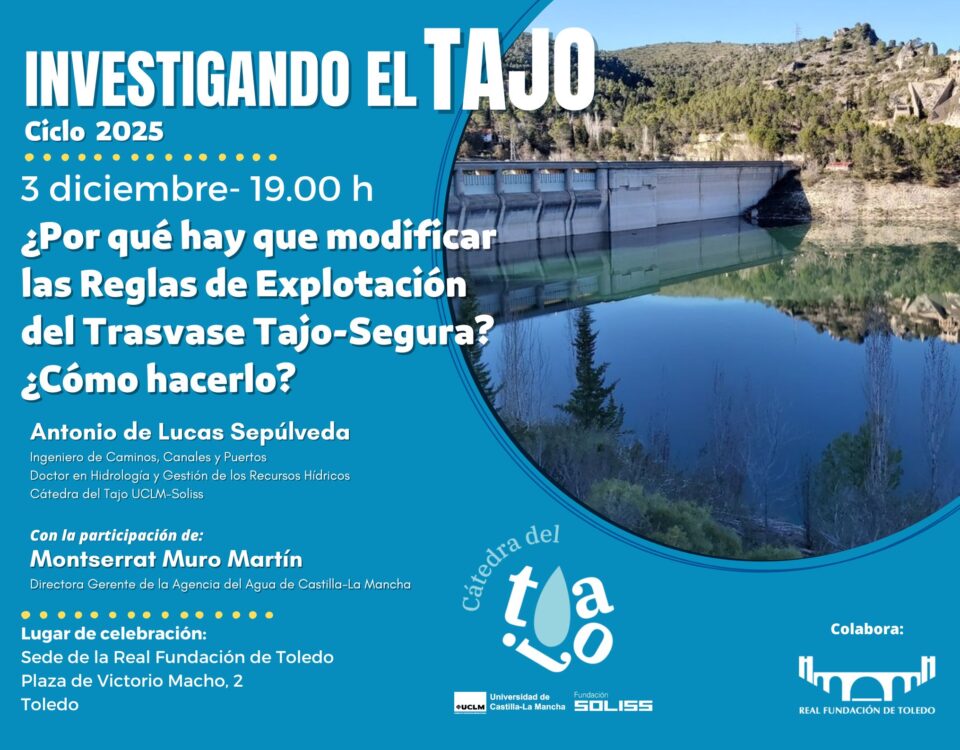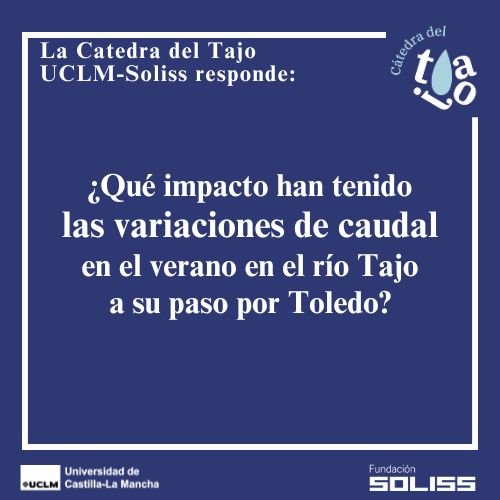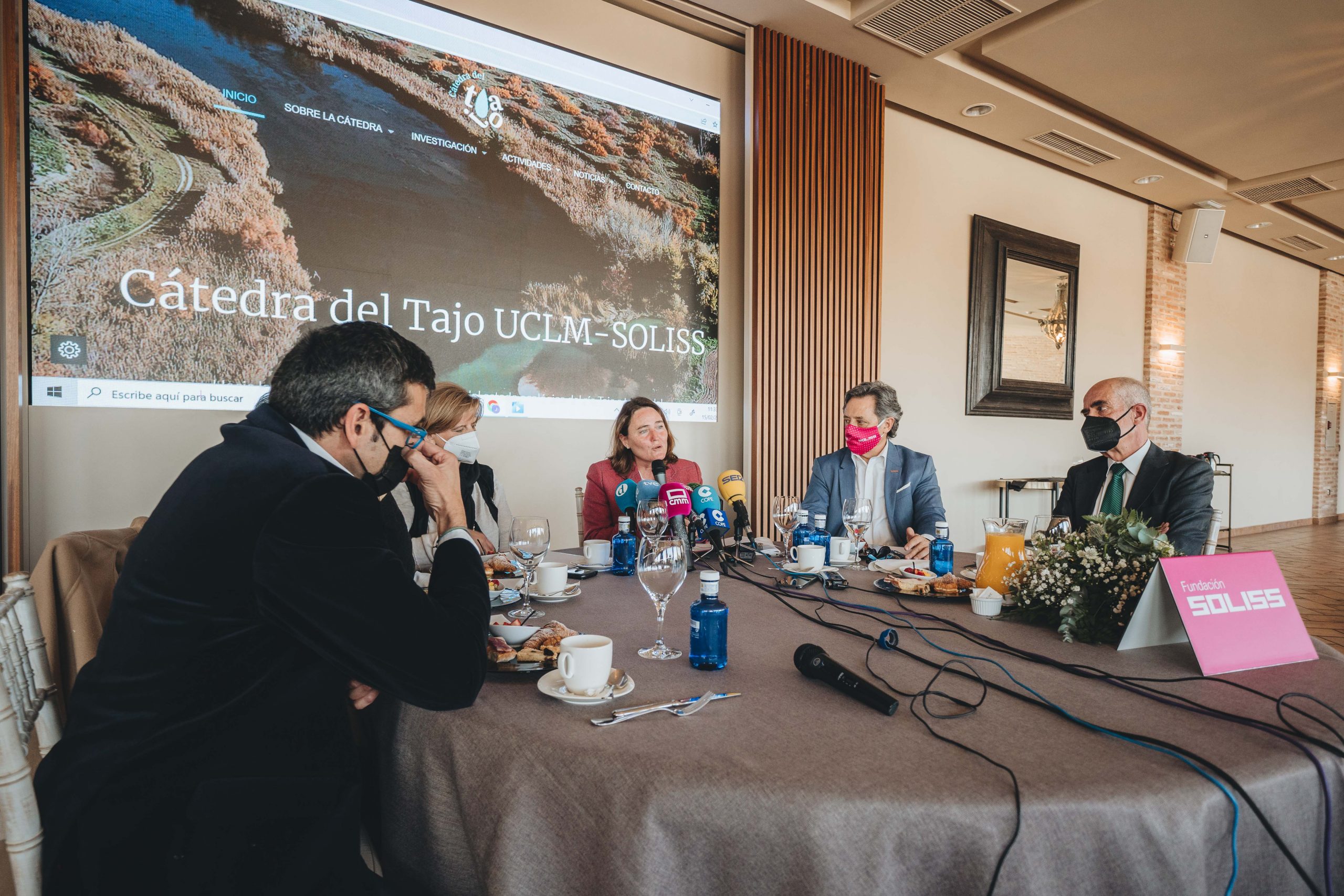
The UCLM-Soliss Tagus Chair asks for the collaboration of the media and the entire riverside society to change the situation of the river without further delays.
15/02/2022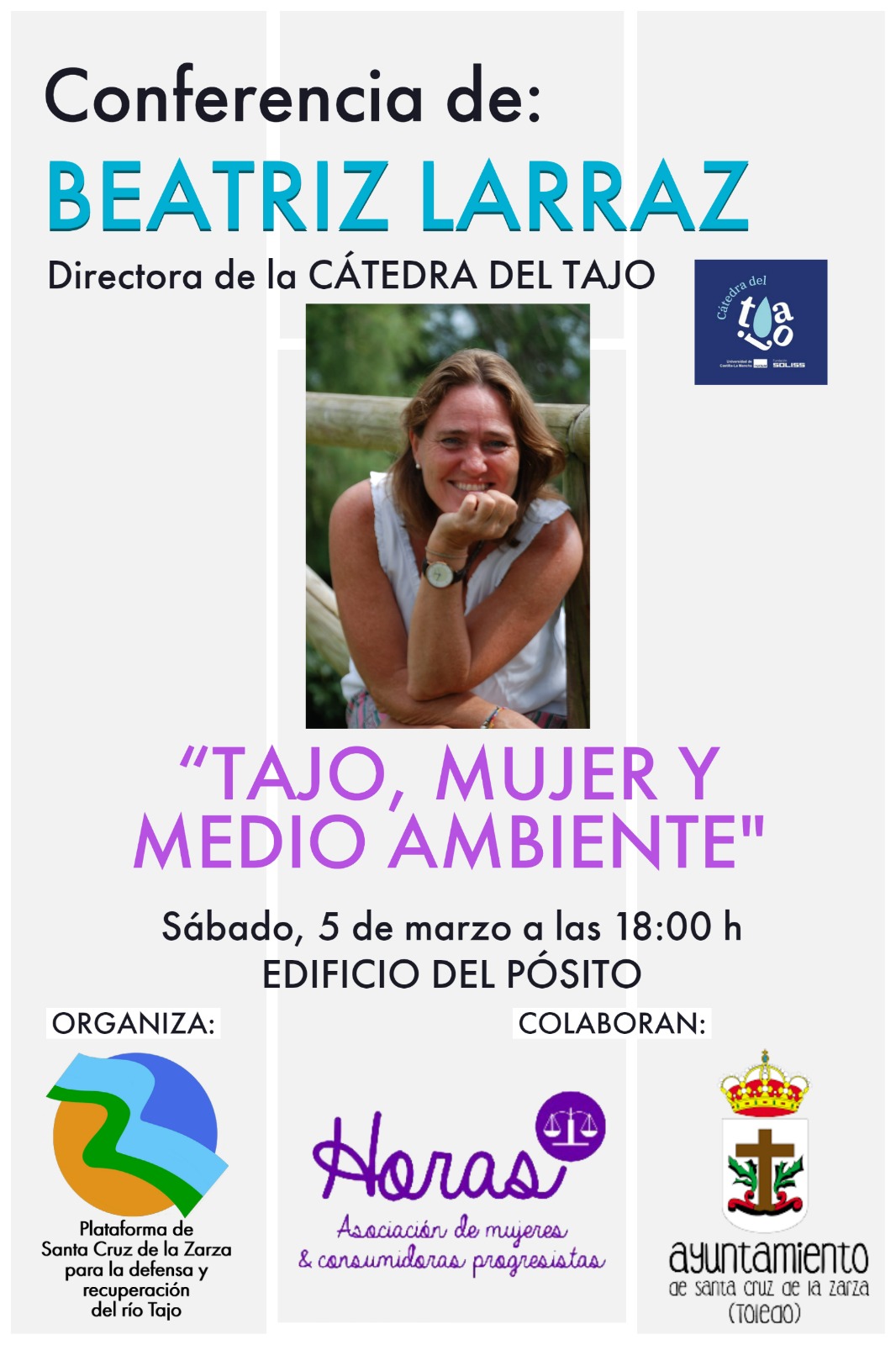
Conferencia-coloquio: «El Tajo, educación ambiental y el papel de la mujer». 5 de marzo en Santa Cruz de la Zarza.
24/02/2022Ayer, 17 de febrero, organizada por la Cátedra del Tajo UCLM-Fundación Soliss con la colaboración de la Real Fundación de Toledo, dio comienzo la séptima edición del ciclo «Investigando el Tajo». Carlotta Valerio, del Observatorio del Agua de la Fundación Botín, presentó una investigación con propuestas para la mejora del estado ecológico de los ríos de la cuenca del Tajo. Así, disminuyendo la concentración de nutrientes y realizando acciones de restauración del hábitat de ribera se podría llegar al buen estado ecológico del 85% de las masas de agua. Por otro lado, el estudio señala que serían necesarios caudales máximos cercanos al régimen natural para el control de las especies exóticas invasoras de peces.
At the headquarters of the Royal Foundation of Toledo, Carlotta Valerio presented her research “Anthropic pressures, ecological status and mitigation measures: contributions to the debate using machine learning”. It involves the establishment of a proven model that is capable of predicting the behavior of different human pressures on rivers on their ecological state. This model has been carried out in two scenarios. On the one hand, in all the bodies of water in the Tagus basin and, on the other, in several rivers in Castilla-La Mancha.
The conclusions of the study are conclusive about the need and possibility of carrying out concrete measures to improve the environmental quality of the Tagus rivers. If the concentration of nutrients decreased and, at the same time, actions were carried out to improve the quality of the riparian forest, 85% of the water masses would reach good ecological status. The remaining 15% would have a moderate status, with none reaching a bad or very bad status. Currently, 39% of the water bodies of the Tagus Hydrographic Demarcation do not reach the objective of good ecological status required by the Water Framework Directive, with 12% having a bad or worse status (data collected in the draft of the Hydrological Plan of the Tagus Demarcation 2022-2027, Annex 9, page 90).
In relation to the above, the study makes special mention of the fact that Spain is the state of the European Union with the highest nutrient concentration limit to comply with the objectives of the Water Framework Directive. Valerio's research concludes that the nutrient limits set in Spanish regulations are insufficient to achieve the environmental objectives of the legislation on the ecological status of water bodies.
The part of the research carried out in the area of Castilla-La Mancha focuses on the presence of invasive exotic species of fish. The conclusion reached is that maximum flows would be needed in reservoirs close to natural flows to eradicate most of the non-native fish, which would not have negative repercussions for native fish populations.
The conference was attended by Beatriz Larraz, director of the Tagus Chair. After the presentation, a debate took place among the attendees. The recording of the conference will soon be available on the website of the Tagus Chair.
